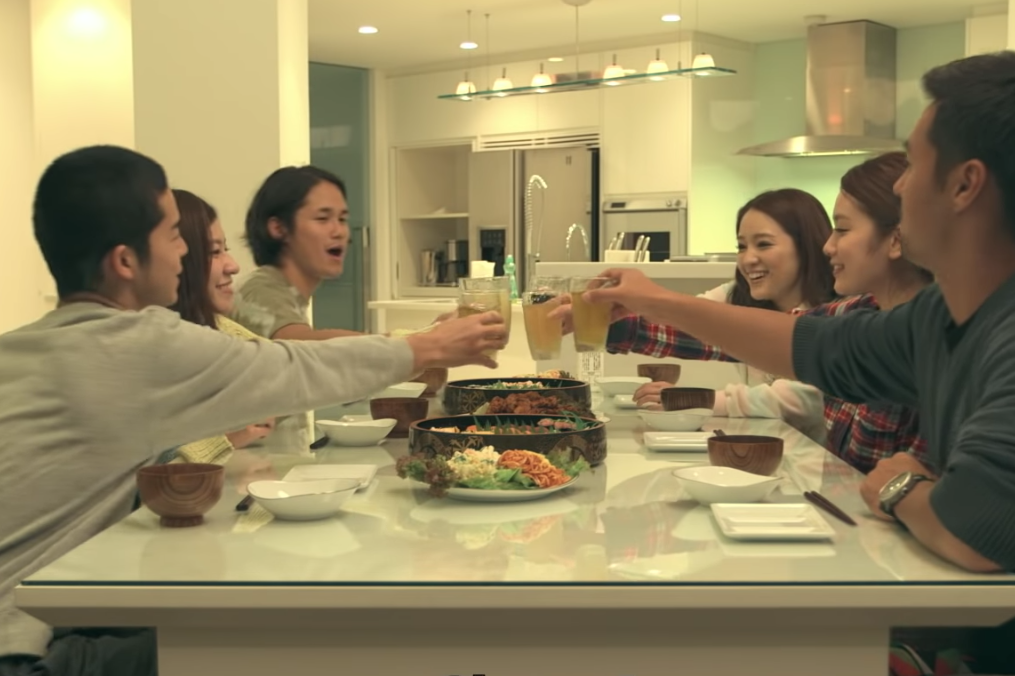There’s no warning to prepare viewers for what becomes the most dramatic sequence of the most recent season of Terrace House — a Japanese reality show that began on Fuji Television Network and Netflix now co-produces and airs.
That’s perhaps owed to the final clause of the show’s delightfully simple conceit and its de facto tagline: “There is no script at all.” Six strangers live in a house together while otherwise continuing their regular, everyday lives, free to move out whenever they please and a new cast member replacing them.
While that doesn’t mean Terrace House is completely devoid of producers’ influence, the claim of being unscripted, paradoxically, never rings truer than during some of the show’s most jaw-dropping moments.
In one case, the drama begins with Maya casually asking Risako about an earlier quibble surrounding an innocuous complaint about a third woman on the show, Yui, being loud during a game of cards.
[Read more: Review: ‘Pokémon Detective Pikachu’ was the most adorable thing Iʼve ever seen]
Over the next two rollercoaster episodes, what began as a conversation Maya barely bothered to sit up for turns into an intense argument over Minions socks that viewers never knew existed — and a discussion of Yui’s sex life that leaves her clinging to entirely inconsequential details in an effort to save face.
Terrace House commonly characterizes itself as a reality show where nothing happens. It’s a kind of anti-reality-show show, defined by its inaction. It’s true that Terrace House remains generally devoted to its laid-back aesthetic; the vast majority of episodes feature neither raised voices nor tears. But reducing it to background noise is just that, a reduction — one that ignores the show’s complexities and severely undersells its flair for the dramatic.
Terrace House is crafted around romance. The six-member house is always split evenly between men and women, and it was well into the show’s fourth iteration (over 200 episodes) before it housed an openly LGBT person.
When a new member enters the house, the other cast members almost immediately ask their relationship status — spoiler: they’re single — and what they look for in a partner. It can be a bit off-putting, but anybody signing up for the show should know to expect it by this point, and many enter with the stated goal of finding romance.
Naturally, the heightened emotions of budding romances are what lead to the conflicts that produce the biggest fireworks of Terrace House lore. But almost without fail, the trivialities of coexisting with five strangers — while trying to keep up appearances on a television show — serve as the kindling.
In this case, it’s a card game and Minions socks. In another, it’s eating someone else’s food from the fridge. These flare-ups are compounded by mostly well-meaning people mishandling conflicts, whether by failing to effectively address an issue early enough, making others feel isolated during the first attempt to do so or not acknowledging how their own actions may have played into the situation.
All of this leads to messy, unclear conflicts, often blindsiding viewers despite being so drawn out. Cameras are only in the house some days, and although cast members are almost certainly encouraged to make sure the biggest moments happen on those days (they’ll never miss a first date), viewers can’t know what’s bubbling beneath the surface.
[Read more: Go ‘wild’ with Bear Grylls on this new interactive adventure]
Yet the major conflicts center around laughable pettiness and cast members doing their best to keep the peace but fumbling through, which doesn’t make the beefs feel any less consequential or interesting. Rather, it just makes them feel true-to-life and confirms the lack of script.
The next season of Terrace House is in Tokyo with six brand-new cast members, and the first batch of episodes is premiering on Netflix next week — if you have access to a VPN. If not, you’ll have to wait until this summer for the worldwide release.
But no matter when you get around to watching Terrace House, you’ll find six strangers trying to get along in a beautiful house. For the most part, they’ll succeed and produce episode after episode of utter tranquility.
In their midst, though, there’s a 20-year-old aspiring model stewing about a perceived slight or a 23-year-old hairstylist who was actually saving that meal for a special occasion, thank you very much.
And when they reach their breaking point, there’s no telling where the house will end up. Because, evidently, you don’t need a script to craft high-intensity, high-quality television.



